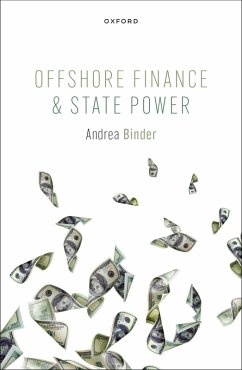Offshore financial centers such as Luxembourg, the Cayman Islands or the City of London provide non-residents with a legal framework that is strong on property rights and soft on taxation and regulation. Building on a historical-institutionalist comparison of Britain, Germany, Brazil, and Mexico, Offshore Finance and State Power asks how these offshore financial services affect the power of the state. Combining a concept analysis with empirical research, the book finds that economic actors go offshore to create money more than to hide it. Legal offshore banking trumps tax planning or money laundering in its impact on state power. Offshore Finance and State Power also reveals that the relationship between the two is not straightforward. Offshore finance can limit state power by transmitting the volatility of unregulated offshore banking into the domestic economy. Yet, counterintuitively, offshore finance can also enhance state power. It provides governments with an extraterritorial vehicle to cover up political conflicts over how to finance the state and to mitigate class conflict. To which extent a state can put offshore finances at its own service, depends on a country's domestic elite constellation and the tax and bank bargains they have forged throughout history.
Dieser Download kann aus rechtlichen Gründen nur mit Rechnungsadresse in A, B, BG, CY, CZ, D, DK, EW, E, FIN, F, GR, HR, H, IRL, I, LT, L, LR, M, NL, PL, P, R, S, SLO, SK ausgeliefert werden.


